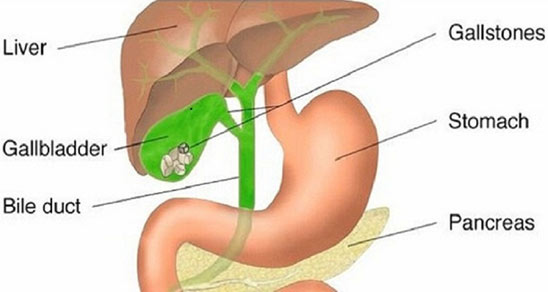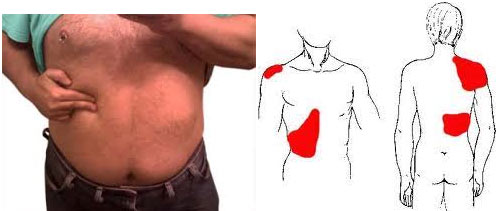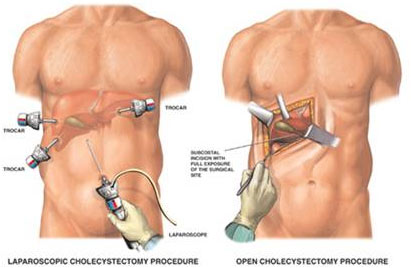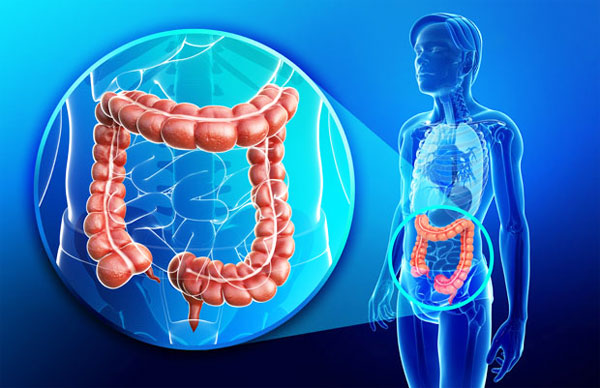Cytoreductive Surgery
What is cytoreductive surgery with Hyperthermic Intraperitoneal Chemotherapy (HIPEC)?
Cytoreductive surgery with Hyperthermic Intraperitoneal Chemotherapy (HIPEC) is an advanced procedure for managing several types of cancer. The doctor may perform the procedure in patients with abdominal cancer which have spread to and limited to the inner lining of the abdomen called peritoneum. It offers several advantages to the patients. It helps in delivering the drug at the site of action and improves the overall survival rate. Less amount of drug is systemically absorbed leading to fewer systemic side effects.

How should I know that I need cytoreductive surgery with Hyperthermic Intraperitoneal Chemotherapy (HIPEC)?
Your doctor will recommend you to undergo cytoreductive surgery with HIPEC if you are suffering from cancers of the abdominal cavity. Cytoreductive surgery with HIPEC is used to metastatic cancers of the colon, rectum, ovary and stomach. It is also used for the treatment of peritoneal mesothelioma, pseudomyxoma peritonei and other disorders. It is important to accurately diagnose the peritoneal malignancies.
What is the procedure for performing cytoreductive surgery with Hyperthermic Intraperitoneal Chemotherapy (HIPEC)?
The procedure of cytoreductive surgery with HIPEC is of two steps. In the first step, the doctors perform cytoreductive surgery. During this procedure, the GI surgeon removes the visible cancerous tissues and leaves the microscopic tissues. Apart from the tissues, the surgeon may also remove the organ or part of an organ if it is not possible to remove the cancerous tissues. The doctor may remove organs such as the gall bladder, section of the small or large intestine, and spleen.
The doctor then performs Hyperthermic Intraperitoneal Chemotherapy (HIPEC) to remove the microscopic cancerous cells. The surgeon heats the chemotherapeutic drug and delivers them directly into the abdominal cavity through the catheter. The heating temperature is around 42-43°C. The cancerous cells die at 40°C, while the normal healthy cells die at 44°C.
What are the advantages of cytoreductive surgery with Hyperthermic Intraperitoneal Chemotherapy (HIPEC)?
Cytoreductive surgery with HIPEC is an advanced procedure for several types of cancers. It combines the advantages of both cytoreductive surgery and HIPEC. One of the common advantages of this surgery include:
- High drug permeation: This process results in high drug permeation into the cancerous tissues. The technique involves the delivery of the chemotherapeutic drug directly into the abdominal cavity to achieve maximum efficacy.
- Improvement in overall survival: Several studies have been performed on the survival of patients with peritoneal cancer after cytoreductive surgery with HIPEC. Most of the studies indicate that this technique improves the overall survival rate. In a study done on peritoneal metastases from colorectal cancer, the median survival was significantly higher as compared to surgery and chemotherapy, only surgery, chemotherapy only, and best supportive care.
- Treats challenging cancers: Cytoreductive surgery with HIPEC has given hope for patients suffering from cancers that are very challenging to manage. It is important to note that the cancer tissues residing on the surface of the abdominal organs or walls are difficult to treat with intravenous chemotherapy.
- Significant reduction in cancerous tissues: Cytoreductive surgery with HIPEC targets the cancerous tissues through different actions and significantly reduces the overall cancerous tissues. It results in delayed progression of cancer into the advanced stage and improves survival.
What are the risks associated with cytoreductive surgery with Hyperthermic Intraperitoneal Chemotherapy (HIPEC)?
There are several risks associated with cytoreductive surgery with HIPEC. Some of them are:
- Clot formation: Patients with this technique are at increased risk for developing the clot that may travel to vital organs and may lead to life-threatening complications.
- Risk of infection: Due to the exposure of the internal tissues, the patients are at risk for developing an infection.
- Cardiovascular complications: HIPEC results in raising the temperature to 40.5°C. It may result in cardiovascular alterations such as increased heart rate, peripheral vasodilation, low cardiac output, and reduction in systemic vascular resistance.
Which doctor will perform the cytoreductive surgery with Hyperthermic Intraperitoneal Chemotherapy (HIPEC)? In Delhi?
Several doctors perform cytoreductive surgery with HIPEC in Delhi. However, the efficacy and outcome of the procedure depend upon several factors, including the experience of the doctor, post-procedure care, and the type of medical equipment and facilities available at the hospital. The patient should consult the best GI surgeon in Delhi for undergoing cytoreductive surgery with HIPEC in Delhi.
Are there optimum facilities available for cytoreductive surgery with Hyperthermic Intraperitoneal Chemotherapy (HIPEC) in Delhi?
Several hospitals have the facilities for performing cytoreductive surgery with HIPEC in Delhi. The best GI surgeons in Delhi are associated with super-specialty hospitals in Delhi for performing this procedure. You should check for the facilities available at the hospitals in Delhi before opting for this procedure.
How many days do I need to stay for cytoreductive surgery with Hyperthermic Intraperitoneal Chemotherapy (HIPEC) in Delhi?
Cytoreductive surgery with HIPEC in Delhi takes around 8-14 hours to complete. The patient had to remain in the hospital for around 7-10 days or more, depending upon the type of cancer. The healthcare team advises the patient to maintain a balance between rest and activity as both are important. While the patient may feel fatigued for about 2-3 months, taking excessive rest increases the risk of blood clot formation.
What should I do If I require more detailed information about cytoreductive surgery with Hyperthermic Intraperitoneal Chemotherapy (HIPEC) in Delhi?
Cytoreductive surgery is a major procedure and is not for every patient with peritoneal mesothelioma. You may have several questions to ask your doctor regarding the procedure. You may fill the form to get your queries solved by the best GI surgeon in Delhi.
Call Now: +91-9599294453, +91-9599294453
Visit: www.gastrodelhi.com
You can also search
for:
HIPEC
Surgeon in Delhi,
Gastrointestinal
Cancer surgery in Delhi,
Colorectal
Surgery in Delhi,
Laparoscopic
Esophageal Surgery in Delhi,
Laparoscopic
Pancreatic Surgery in Delhi,
Laparoscopic
Colorectal Surgery in Delhi,
Laparoscopic
Hepatobiliary Surgery in Delhi,
GI
Surgeon in Delhi,
Stomach
cancer treatment in Delhi,
Gallbladder
stone Surgery in Delhi,
Robotic
surgery in Delhi,
Esophagus
Surgery in Delhi,
Laparoscopic
Gastrointestinal Surgery in Delhi,
Colorectal
surgeon in Delhi,
Pancreatic
treatment in Delhi,
Cancer
surgeon in Delhi,
Esophagus
Surgeon in Delhi,
Robotic
Surgeon in Delhi,
HIPEC
Surgery in Delhi,
Laparoscopic Hepatobiliary Surgeon in
Delhi,
Stomach
Cancer Surgeon in Delhi,
Gallbladder
stone Treatment in Delhi,
Pancreatic
Cancer Treatment in Delhi,
Pancreatic Surgery in Delhi,
Gastrointestinal
Cancer Doctor in Delhi,




















